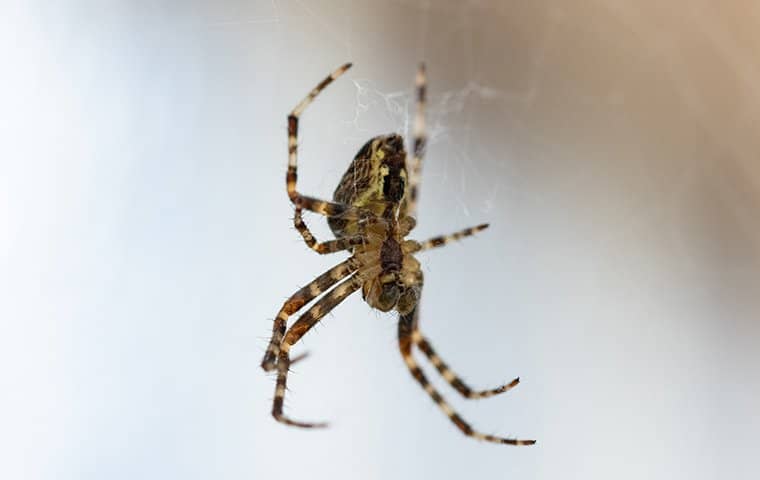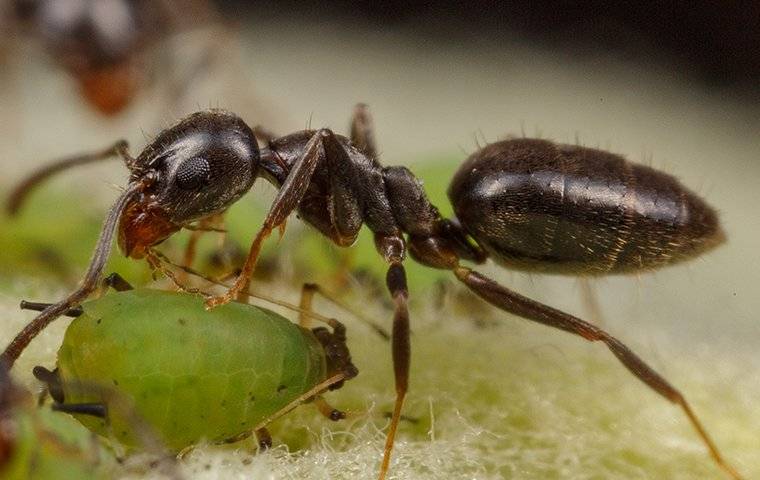
West Palm Beach's Ultimate Guide To Spider Control
March 31, 2024
Concerned about spiders in West Palm Beach? Discover how Empire Pest Defense can make your home spider-free!... Read More
Request Your Inspection Today! (561) 798-7216
Get StartedThe white-footed ant is relatively easy to identify upon close inspection. They have a dark brown or black body and feet that are much paler in color. White-footed ants are small in size, but their colonies are enormous; a single colony may have more than three million members. An interesting fact about these ants is that up to thirty-three percent of the ants in a colony are reproductive. These prolific breeders can quickly take over any space they decide to make into their home or foraging grounds.

White-footed ants are not a type of ant that threatens people's health or causes destruction to property, but like other ants, they aren't welcome to take over our properties for several different reasons.
After moving inside, they will contaminate surfaces with bacteria they carry on their bodies.
They will get into and contaminate food sources.
Traveling throughout our homes in large numbers is annoying and frustrating to deal with on a daily basis.
Multiple nesting sites make it challenging to eliminate and control these pests in our Florida homes and yards.
White-footed ants feed on honeydew, nectar, and other sweet liquids. Their feeding habits make our yards very attractive, and they will utilize our gardens, flowering plants, fruit trees, trash cans, and recycling bins as foraging sites.
Moisture is another reason that ants are attracted to properties and why they are so successful in Florida's hot, humid climate. Things like clogged gutters, leaking pipes, overgrown vegetation, and overwatered yards or gardens will draw white-footed ants onto a property.
These ants do well in any habitat, rural or urban, as long as food and moisture are present.
Outdoors, these moisture-loving pests will nest behind loose bark, in decaying tree trunks, under landscaping ties, under mulch, and under piles of leaves or grass. They can also become a problem in greenhouses and plant nurseries nesting in the damp soil of growing plants and trees.
In homes, white-footed ants nest in areas where moisture likes to collect, providing them with the warmth, and humidity they love. Wall voids in kitchens and bathrooms, crawl spaces, attics, and areas around windows, doors, and skylights are popular nesting sites for white-footed ants. These ants also sometimes like to nest around electrical outlets and equipment, which may lead to electrical shortages.
To get rid of the current problems you are experiencing with white-footed ants in your West Palm Beach home or business, reach out to the Empire Pest Defense experts. We will protect your property from white-footed ants and other pests through detailed inspections, interior and exterior treatments, and ongoing services.
Empire Pest Defense is a local company with a deep commitment to the community. Our technicians are licensed, insured, trained, and dedicated to helping West Palm Beach residents keep their residential or commercial properties free of pests. Contact us today and learn more about our effective pest control services!
Avoid problems with white-footed ants with the help of the professionals at Empire Pest Defense, our effective pest control solutions, and our practical prevention tips:
To keep ants and other pests out of your home, make repairs to cracks in the foundation, exterior walls, roofline, and gaps around windows and doors.
Gutters and downspouts should be well-maintained and directing water away from your home's exterior.
Fix leaky pipes, faucets, and fixtures.
Trim tree branches, shrubs, and bushes away from your home.
Don't overwater garden areas.
Keep outdoor eating areas free of food debris.
Remove grass piles, leaves, and other debris from your property.
Regularly vacuum and keep counters clear of food debris.
Complete the form below to schedule your no obligation inspection.

March 31, 2024
Concerned about spiders in West Palm Beach? Discover how Empire Pest Defense can make your home spider-free!... Read More

March 20, 2024
Is your West Palm Beach garden suffering from white flies? See how the pros at Empire Pest Defense can help restore its health.... Read More